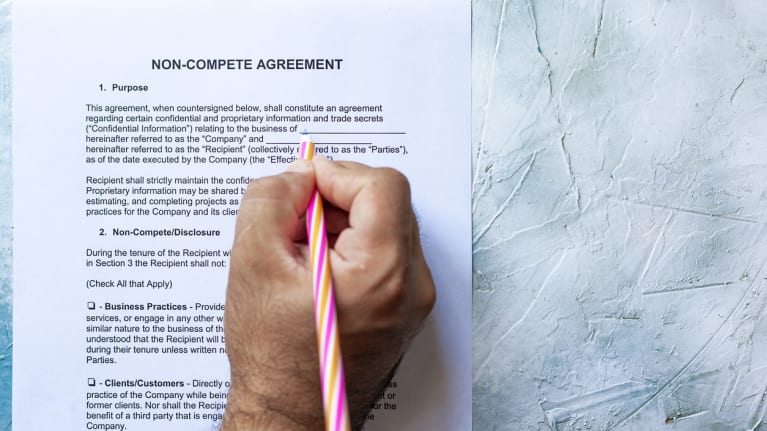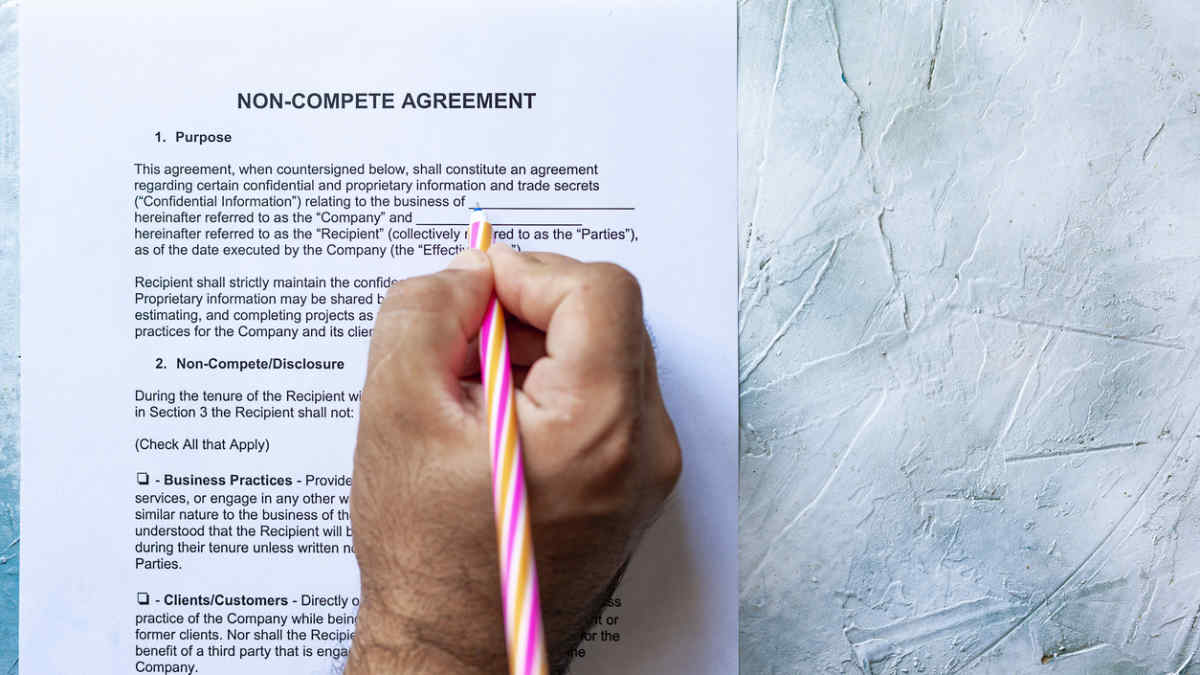

?Laws governing the use of restrictive covenants have been changing recently, so HR professionals and employers need to stay abreast of updates that occur in their state.
Gregory Hare, a lawyer with Ogletree Deakins in Atlanta, presented some practical tips and best practices for using restrictive covenants, such as noncompete agreements, nondisclosure agreements and nonsolicitation agreements, at the SHRM Annual Conference & Expo 2022 in New Orleans and virtually on June 13.
State Restrictions
“States are making it harder” to use noncompete agreements, but restrictions vary by state, Hare noted.
At the same time, the Biden administration has “really been harping on this,” arguing that noncompete agreements are an unfair restriction on trade or an unfair suppression of wages, Hare said. “They are pushing this rock up the hill.” But he doesn’t expect to see federal regulations prohibiting the use of noncompete agreements in the near future.
In some states, you can’t enforce a noncompete agreement unless the person worked for your company for at least two years. Some states don’t allow companies to enforce noncompete agreements unless the person was a high earner, making above a certain amount in annual salary.
Some states don’t permit noncompete agreements unless you tell employees about it on their first day of employment. In other cases, you can introduce a noncompete agreement when an employee gets a promotion to a certain level within your company, such as moving up from midlevel management to executive status, Hare said.
Depending on state law, you might be able to introduce a noncompete agreement as part of your conditions for accepting severance pay. “Never give money away for free. If you’re going to give somebody severance pay, make sure you get something in return,” Hare said.
If you fired the employee, a noncompete clause still would be enforceable in most states, Hare said.
‘Think Strategically’
Before you ask employees to sign a noncompete agreement, think carefully about what you’re trying to accomplish and whether it’s worth it. “Think strategically about do you really need to put this person on ice, and is it worth the time and effort to put this person on ice with a noncompete agreement?” Hare advised. “Some people are a really significant loss to your organization when they leave. Some, not so much.”
Maybe the person is the face of your business in four states or is an executive who does a lot of relationship managing. Then it might be worthwhile to give the person a large bonus to sign a noncompete agreement, Hare explained.
Nuts and Bolts of Noncompete Agreements
To be enforceable, a noncompete agreement has to be limited to two years or less, the state or region the person worked in, and the role the employee held at your organization, Hare said. One way to avoid making it overly broad would be to include a paragraph that names certain states where the noncomplete clause is unenforceable.
Make sure the noncompete agreement is saved as a digital record, not just a paper in someone’s file cabinet because that can easily be stolen. Noncompete agreements and other restrictive covenants should be separate from your company’s employee handbook because the handbook is not an employment contract, Hare advised.
You should ask all employees to sign a nondisclosure agreement that prevents them from taking your data when they leave, Hare recommended. “You always want to protect your data. The data, the secret sauce, is really important,” he said.
Before you hire someone, always ask if there are any restrictive covenants that would affect the person’s ability to work for your organization, Hare added.
Noncompete Agreements Can Plug Holes in Nonsolicitation Agreements
Nonsolicitation agreements prevent employees from taking their current set of customers with them when they leave your organization.
What if someone announces on an online platform like LinkedIn that he or she changed jobs and looks forward to working at a new company? Many connections who read that announcement were probably customers or potential customers, and maybe your company lost a number of customers as a result. Does that count as violating a nonsolicitation agreement?
“The courts are very confused about that because they don’t know what to do with it,” Hare observed.
A noncompete agreement is the way to prevent that scenario from happening, since a “nonsolicitation clause is not going to be enough in that situation,” Hare observed. Defining who is a business prospect is tricky and not clear in the courts yet, he said.
